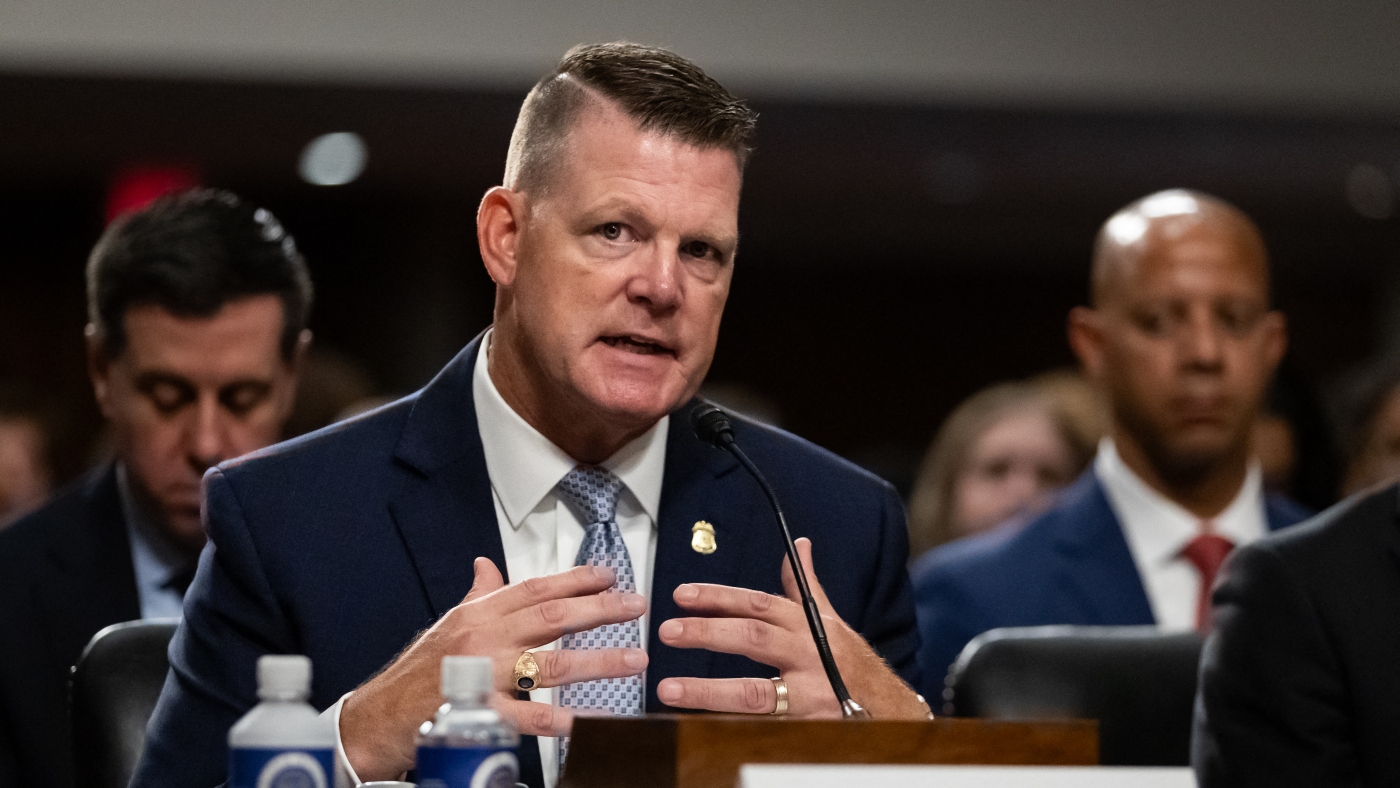FBI says possible social media account tied to Trump shooter : NPR

Ronald Rowe, Secret Service acting director, testifies Tuesday about the attempted assassination of former President Donald Trump.
Allison Bailey/Middle East Images/AFP via Getty
hide caption
toggle caption
Allison Bailey/Middle East Images/AFP via Getty
The FBI has found a social media account featuring antisemitic and anti-immigration comments that investigators believe to be associated with the gunman who tried to assassinate former President Donald Trump, a senior bureau official said Tuesday.
FBI Deputy Director Paul Abbate told members of Congress that the account could be linked to the shooter, Thomas Crooks, but he cautioned that officials are still working to verify the account’s authenticity.
“There were over 700 comments posted; some of these comments, if ultimately attributable to the shooter, appear to reflect antisemitic and anti-immigration themes to espouse political violence and are described as extreme in nature,” Abbate told a joint hearing of the Senate Judiciary and Homeland Security committees.
The note of caution about the account’s authenticity stems, in part, from confusion about a gaming account that the FBI had at one point attributed to Crooks but later turned out to be a hoax.
The details about the account came as lawmakers questioned Abbate and the acting director of the Secret Service about security failures and other details of the July 13 shooting targeting Trump, the Republican presidential nominee, in Butler, Pa. Crooks was able to fire eight shots from the roof of a nearby building; a bullet or bullet fragment struck Trump, killed a person at the rally, and injured two others before Crooks was killed by a Secret Service sniper.

Abbate said the account dates to the 2019-2020 time period, when Crooks would have been 15 or 16 years old. It could provide a glimpse into Crooks’ thinking, which has proven elusive as the FBI said the shooter generally had few social contacts and little social media presence. It wasn’t clear from Abbate’s comment what social media account it was on.
Sen. Rick Scott, R-Fla., blamed federal officials for not talking more to the press and providing regular updates on their investigations.
“You’re a black hole. You lose the support of the American public because people don’t believe you’re being direct with them,” he said.
In addition to questions about the shooter, lawmakers also slammed the Secret Service’s security gaps. The Secret Service’s acting director, Ronald Rowe, said security at the July 13 rally was a failure on multiple levels, and he had implemented changes to security to ensure another shooting doesn’t happen again.
Rowe said he retraced Crooks’ steps on the roof to try to understand how he was able to get a shot at Trump and what went wrong.
“What I saw made me ashamed,” Rowe told lawmakers. “As a career law enforcement officer and a 25-year veteran with the Secret Service, I cannot defend why that roof was not better secured.”
Rowe also blamed communication silos between Secret Service agents and local law enforcement. Reports being discussed on a text chain did not get shared with Secret Service agents on the scene: “Nothing about man on the roof, nothing about man with a gun, none of that information ever made it over our net,” he told the hearing.
He said changes to security procedures include using more drones to help detect threats on rooftops, and ensuring every security plan for events is vetted by multiple supervisors.
Rowe stepped in to run the Secret Service after the previous director, Kimberly Cheatle, resigned from her job last week after she faced withering criticism from both Democrats and Republicans for not being able to fully answer their questions about the attempted assassination.

Some Republican senators at the hearing made it clear that Cheatle’s resignation wasn’t enough to assuage their concerns.
Sen. Josh Hawley, a Republican from Missouri, urged the agency to fire more people, while Sen. Roger Marshall, R-Kan., accused the Secret Secret of either “incompetence or some type of a cultural problem” — something the acting director disputed.
“I think you would agree with me that there were multiple individual and institutional failures the day of this assassination attempt,” Marshall told Rowe.
Source link




